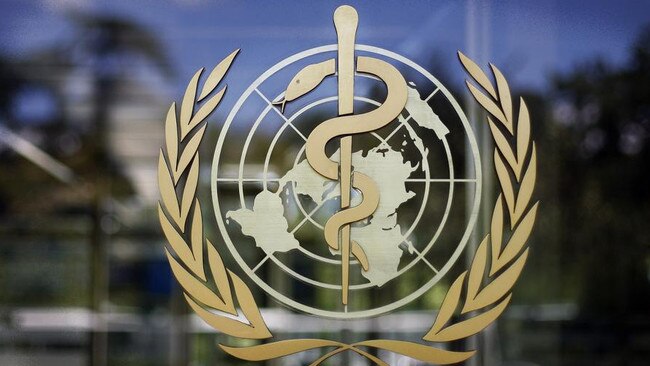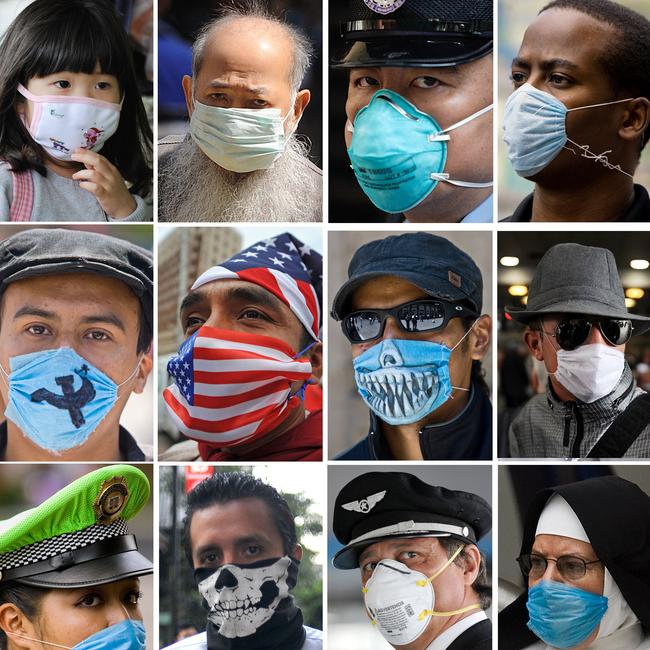Alan Jones: Australia’s economy may have paid too high a price fighting the coronavirus
Australia’s economy has paid far too high a price against COVID-19 without gaining the exposure that will make us safe, so it’s time to award the Oscar for creating hysteria and alarmism to “expert” Professor Neil Ferguson and to thank Professor Michael Levitt for calling it out, writes Alan Jones.
Opinion
Don't miss out on the headlines from Opinion. Followed categories will be added to My News.
- Virus bleeding $4B a week from Australian economy
- Sydney’s iconic art, fashion and market space Carriageworks closes
As the Morrison government now struggles to fashion an appropriate economic response to the coronavirus, it is instructive to note a piece parked almost out of sight in this newspaper’s sister publication, The Australian, by its economics editor Adam Creighton.
It alluded to a 30 minute interview with Michael Levitt, who won the Nobel prize for chemistry in 2013.
There is no doubt that Professor Levitt is correct in identifying the hysteria and alarmism that overtook many at the beginning of this pandemic, prompted by what he called “incorrect numbers”.
On “incorrect numbers”, the Oscar must go to the “expert” and long time adviser to the British Government, Professor Neil Ferguson from the MRC Centre for Global Infectious Disease Analysis at Imperial College London.


In 2001, his modelling predicted 150,000 people would die from Mad Cow Disease.
He so advised the government.
There were fewer than 200 deaths.
In 2005, he said up to 200 million people could be killed from Bird Flu.
He so advised the government.
282 people died.
In 2009, he advised the Government that Swine Flu would lead to 65,000 UK deaths.
It killed 457 people.
This sort of “modelling” and alarmism has delivered us a good deal of trouble – and many losers.
Professor Michael Levitt argues that Germany and Sweden, from this pandemic were “standout winners”.
Germany, 82 deaths per 1 million people.
Sweden, 265.
Yes, Australia has 4 deaths per 1 million people.
But when Levitt talks about “standout winners” he argues, of Germany and Sweden, “They didn’t practise too much lockdown. Enough people got sick to get some herd immunity.”
The words “herd immunity” frighten people. But in the absence of a vaccine, herd immunity is where the community is practically immunised by getting the virus, like Peter Dutton, Richard Wilkins and Tom Hanks.
THIS TOO SHALL PASS?

It was the Prime Minister himself who said on Sunday, March 15, at the beginning of all of this, “The truth is that while many people will contract this virus, it is clear just as people get the flu each year, it is a more severe condition than the flu, but for the vast majority … around eight in ten … it will be a mild illness and it will pass. However, for older Australians and those who are more vulnerable, particularly those in remote communities and those with pre-existing health conditions, it is a far more serious virus and that is our concern. Our aim in all of this is to protect the most vulnerable, the most at risk.”
When Professor Levitt describes Australia, amongst others, as “standout losers”, he argues “They’ve damaged their economies and society, harmed the education of their children but not obtained any herd immunity”. When Boris Johnson mentioned the words, herd immunity, at the outset, all hell broke loose and his policy, based on advice from people like Professor Ferguson, swept the UK into lockdown.

But as Professor Levitt makes the point, Britain, now with 441 deaths per million, were “on exactly the right track before they were fed wrong numbers and now have made a huge mistake”, referring to modelling in March that said 500,000 people would die in Britain.
Which brings us back to this point of immunity.
News bulletins breathlessly announce the number of new cases, a hardly relevant statistic.
If, as is the case articulated by the Prime Minister on March 15 that for “around eight in ten … it will be a mild illness and it will pass”, we have now endured a lockdown that has, as Professor Levitt argues, damaged our economy without gaining immunity.
The Wall Street Journal several weeks ago argued, “If policy makers were aware from the outset that the COVID-19 death toll would be closer to that of seasonal flu than the millions of American deaths predicted by early models … would they have risked tens of millions of jobs and livelihoods?” For every death that has occurred in Australia, and we are rightly amongst the world leaders in containing the death rate, nonetheless, Australians have lost almost 10,000 jobs.

The Treasury Secretary has said that some jobs and businesses, lost during the coronavirus crisis, will be gone permanently and unemployment could hit 10% for the June quarter.
In some industries, jobs fell by 25% in three weeks.
Of course, unemployment rose to high levels in the Great Depression; but it did that over the course of a couple of years.
As the Treasury Secretary has said, these movements are happening in just a couple of months.
More than 1.6 million Australians lost their incomes in the first week of a total coronavirus lockdown.
If, as the Prime Minister suggested back in March, for eight out of ten Australians it would be nothing more than “a mild illness and it will pass”, what would be wrong with those eight out of ten contracting the virus?
That is called herd immunity.
And in the absence of the vaccine, that is the ultimate vaccine.
As Professor Levitt argues, the damage from draconian lockdowns, “will exceed any saving of lives by a huge factor – there is no doubt in my mind”.
We can only hope he is wrong.
When I raised this argument at the outset, I was shouted down.
The words “herd immunity” seem to have become pejoratives and “lockdown” is the currency of the day.

But “herd immunity” posits that most people under the age of 65 who get the coronavirus, if they don’t have major pre-existing medical conditions, will experience it as a typical or tough flu.
In fact, New York City is a case in point, where television pictures are good at highlighting the dramatic escalation in deaths.
But the latest death toll in New York City is 13,319.
Only 81 of those deaths had no pre-exiting conditions, which represents 0.608% of all deaths in New York City.
In NSW, the number of deaths as a percentage of those who have been tested is 0.018%.
In Queensland the 6 deaths as a percentage of the number of tests is 0.006%.
On those figures, what economic price have we paid?
AVOIDING THE WORST
The argument about herd immunity is that you put your resources into those at risk, those over 65 and those with serious pre-existing conditions, notably heart and lung disease and diabetes, and let much of the rest of the population get on with life.

Once about 60% of your population has gone through a Dutton-like episode, you’ll have what’s called herd immunity and the viral transmission is blocked.
The upside to this strategy, which has been demonised, is that the economy does not take such a deep hit from lockdowns.
No one is talking about open slather.
Where governments have tried the herd immunity strategy, social distancing guidelines apply.
They are here for some time.
Some people are working from home and non-essential travel is discouraged, amongst other measures
But these countries avoid mass unemployment and horrific economic damage; whereas for us, society and the economy are badly damaged yet after the lockdown ends, the virus is potentially still with us.
Common sense would tell you that if we don’t have a vaccine, then the only other immunity is for the population to have caught the virus.
The Prime Minister and his team have done a hell of a job here.
But I can’t help feel there is a bigger task ahead.
We have had the lockdown, with a massive cost to the economy from which recovery will be long and painful.
But what further price may we pay if we don’t have immunity and are putting all our eggs in the vaccine basket?
Listen to the Alan Jones Breakfast Program on 2GB weekdays from 5.30am-9am

